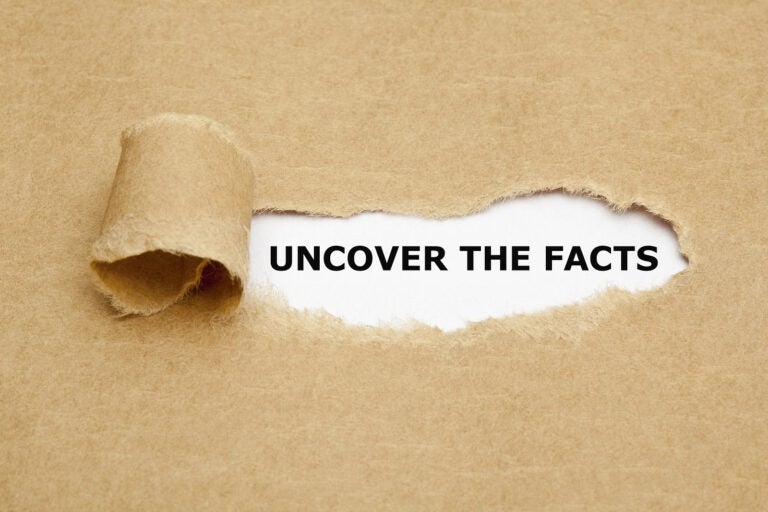What It Takes to Prove the Truth
In the “post-truth era,” we explore standards of proof, evidence, and how we know what we think we know.
Listen 49:14
Uncover The Facts appearing behind torn brown paper. ** Note: Shallow depth of field
We all want the truth — from our family and friends, experts and the news media, institutions and the government — but how exactly do we know when something is true? That’s a question that’s become especially relevant in recent years, as deep ideological fault lines have caused growing fractures in our national discourse and, along with it, public trust. All of which has led to an ever-growing emphasis on the importance of evidence — the kind of proof that’s capable of easing doubts and settling debate.
But the kinds of proof we’re willing to accept can vary greatly depending on the situation. On this episode, we explore proof and evidence, and how it affects our perception of what’s true. We hear about the Oklahoma City bombing, and why, 30 years later, families of victims continue to raise questions about what really happened; a mathematically-trained epidemiologist joins us to discuss proof in different urgent settings; and we’ll hear about a scandal in the field of marine biology that revealed a lot about the scientific process and its search for truth.
ALSO HEARD:
- We talk with mathematician and epidemiologist Adam Kucharski about how we think about the truth, and what kinds of proof we’re willing to accept. We hear about the mathematical origins of Abraham Lincoln’s approach to making a case, and how our psychological biases can affect our perceptions of proof. Kucharski’s book is called, “Proof: The Art and Science of Uncertainty.”
- Researchers rely on rigorous methods to discover and prove the truth — experiments, trials, and documentation — so that other scientists can replicate or disprove their findings. But what happens when that process fails? Alan Yu looked into a case where a high-profile study in marine biology made a big splash — and then even bigger waves in the scientific community when the findings seemed to fall apart.
Segments from this episode
WHYY is your source for fact-based, in-depth journalism and information. As a nonprofit organization, we rely on financial support from readers like you. Please give today.






